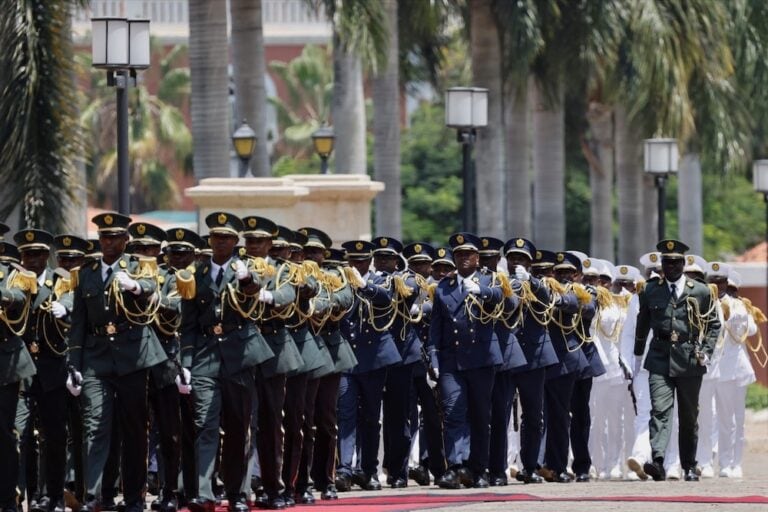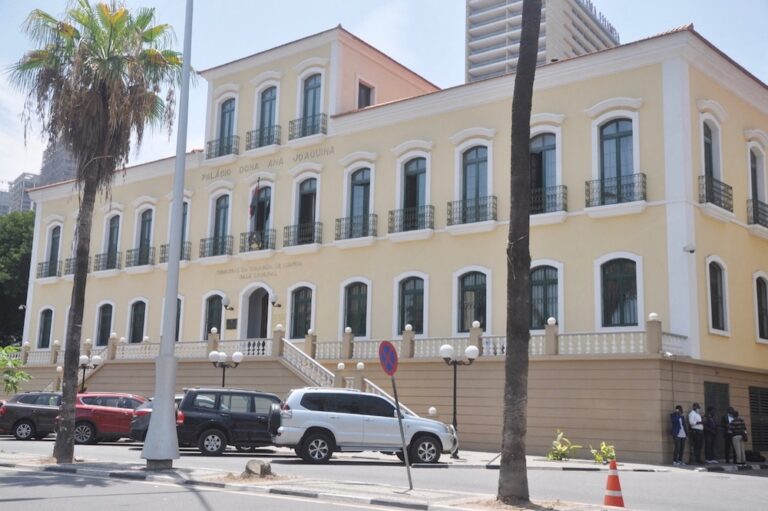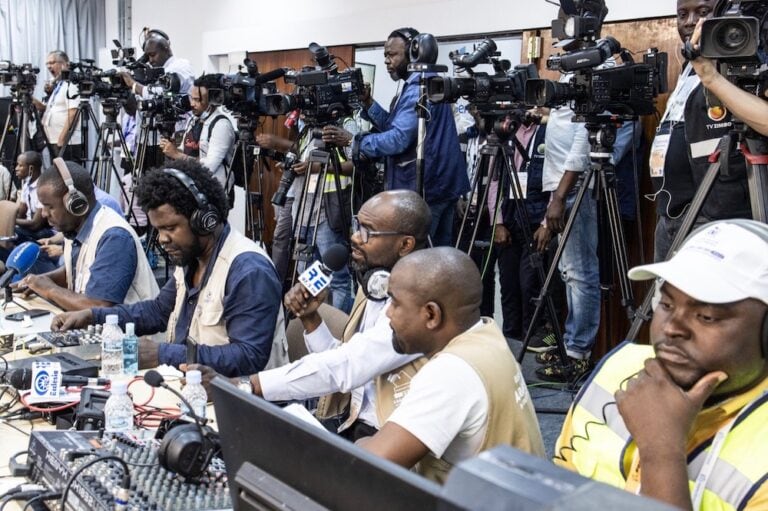(MISA/IFEX) – The editor of the independent bi-weekly “Folha 8”, William Tonet, was arrested at his home on Saturday 2 October 1999. Early on 4 October, Tonet’s lawyer was able to visit him in jail, but was unable to secure his release. Tonet was arrested at 4 a.m. (local time) on the morning of 2 […]
(MISA/IFEX) – The editor of the independent bi-weekly “Folha 8”, William
Tonet, was
arrested at his home on Saturday 2 October 1999. Early on 4 October,
Tonet’s lawyer was able to visit him in jail, but was unable to secure his
release. Tonet was arrested at 4 a.m. (local time) on the morning of 2
October.
**Updates IFEX alerts of 16 September, 14 September, 17 August, 13 August,
11 August and 10 August 1999**
Several MISA sources have advanced different reasons for Tonet’s arrest,
largely because the police’s Department of Criminal Investigations (DNIC),
who are holding Tonet, have failed to give any official reason for his
arrest.
One source said that Tonet was being held “for not paying fiscal duties” to
customs on a shipment of foreign goods which he imported into the country
and that he was being investigated by the police’s Economic Crimes Unit.
Another source said that he was being held in connection with an article
which appeared in “Folha 8” last week and which alleged corrupt practices in
the Economic Crimes Unit. Yet another source said that Tonet was being held
by DNIC in connection with an article which quoted a press release from the
UNITA rebel movement about the situation in the towns of Andula and Balundo
in the central part of Angola. The source added that DNIC had allegedly
questioned Tonet on how much “Folha 8” was being paid by UNITA for using its
press release.
In a separate development, the independent weekly, “Angolense”, failed to
appear on the streets during the week of 19 September as scheduled following
a dispute between the publishers and the editor over articles contained in
the paper.
The editor of “Angolense”, Graca Campos, told MISA that the publisher, Reis
da Costa, took exception to an article about the Eduardo dos Santos
Foundation (FESA), a philanthropic organisation set up in the president’s
name. Costa apparently wanted to fire Campos as editor but was opposed by
the body of journalists at the paper. As a result, on September 20, Costa
took Campos to court in order to enforce his dismissal, citing
mismanagement of the paper. The case was postponed.
Latest news from Luanda indicate that the publisher and news staff at
“Angolense” have reached an agreement to the effect that they will avoid
controversial editorial matters. It is not clear whether the case will
continue.
Meanwhile, also on 20 September, Campos along with the director of
“Angolense”, Americo Gonsalves, appeared in court to respond to a case in
which the governor of Kuanza-Norte province, Manuel Pacavira, is suing the
paper for defamation. This follows an article published by “Angolense”
earlier this year which alleged corruption and other irregularities in the
running of the province. The case was postponed.
Background Information
This is the fourth time since April 1999 that Tonet has been picked up by
the DNIC. Tonet is also currently facing a court case where the military is
suing him for “slander, insulting the army, libel, incitement to subversion
and desertion” because of articles which appeared in his paper. On 3 and 6
September, journalist Gilberto Neto from “Folha 8” was held by DNIC in
connection with articles about a police raid on the church-owned Radio
Ecclesia in August. On 8 September, two layout artists from the paper were
also held by DNIC. On 14 September, shortly after his third interrogation at
the hands of the DNIC, Tonet denounced the police, saying they had
established a censorship bureau at DNIC to deal specifically with “Folha 8”.
This involved the DNIC being able to call the
director, journalists and other personnel at the paper for interrogation at
any time.
Tonet said the campaign included the recruitment of informers and spies “to
watch our steps, inform about our sources and perform other shady
assignments to suffocate those who challenged the ruling power.” Tonet added
that the operation was being co-ordinated by the Selective Crimes Section,
which was regarded as an appendix of the state security unit to deal with
special political matters, and mentors of a brainwash programme
to discourage independent journalists from commenting on issues which did
not favour the government.
Recommended Action
Send appeals to authorities:
they
either immediately charge him or unconditionally release him
both a violation of the Angolan Constitution and the fundamental human
rights of media workers as enshrined in international treaties and
conventions, including the International Covenant on Civil and Political
Rights and Article 19 of the Universal Declaration of Human Rights
Appeals To
Hon Jose Eduardo dos Santos
President of the People’s Republic of Angola
Fax: +244 2 392 733/ 391 476/ 331 898Hendrick Vaal Neto
Minister of Information
Fax: +244 2 343 495
Please copy appeals to the source if possible.


